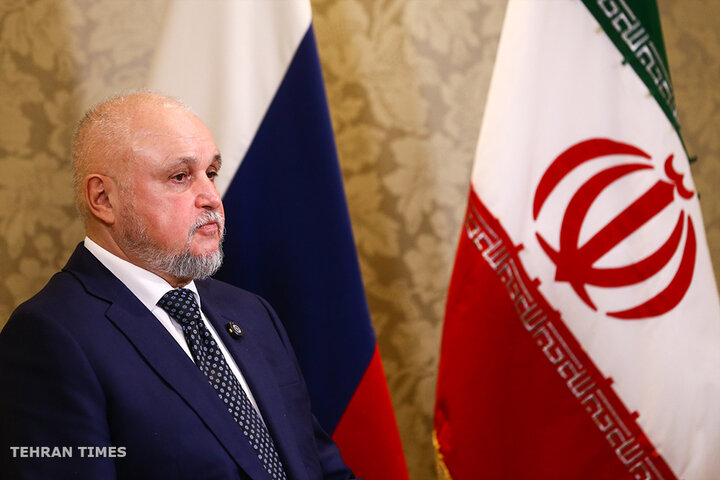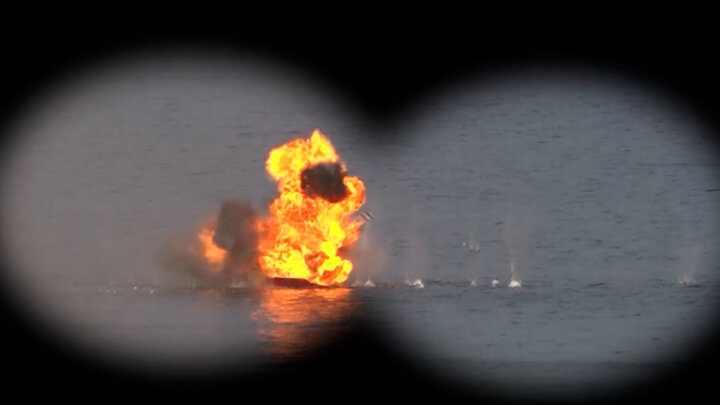-
 2026-03-01 21:20
2026-03-01 21:20
By Soheila Zarfam
Millions of Iranians vow revenge while mourning Leader's martyrdom in the streets
TEHRAN - Disbelief, grief, anger, and a strong desire for revenge—these were the emotions that permeated the air as thousands of citizens gathered in Tehran's main central squares after learning that the U.S. and Israel had assassinated their beloved leader.
-

A lifetime of resistance
Biography of Ayatollah Khamenei
Seyyed Ali Hosseini Khamenei was born in April 1939 in Mashhad. He was the second son of his family. His father, Seyyed Javad Khamenei, was one of the scholars and jurists of his time. His father was born in Najaf and moved to Tabriz with his family during his childhood.
-

By Xavier Villar
The assassination of Ayatollah Khamenei: A strategic miscalculation by US
MADRID – At 86, Leader of the Islamic Revolution Ayatollah Seyyed Ali Khamenei embodied the strategic continuity of the Islamic Republic. For Washington and Tel Aviv, he appeared central to Iran’s deterrence doctrine, regional projection, and ideological coherence. The joint Israeli-American strike on his Tehran compound, code-named “Roaring Lion” and “Epic Fury,” was framed as a decapitation operation.
-

By Samaneh Aboutalebi
Books, poetry, culture of resistance: cultural legacy of Ayatollah Khamenei
TEHRAN- On February 28, Ayatollah Seyyed Ali Khamenei, the Leader of the Islamic Revolution, was martyred in a coordinated attack by Israel and the United States that struck his office in central Tehran. His martyrdom has sent shockwaves through the country and across the Muslim world.
-

By Wesam Bahrani
Imam Khamenei and the ideal of martyrdom
TEHRAN- Before his assassination, Imam Khamenei had long thought of martyrdom as the highest expression of faith. He saw self-sacrifice as the ultimate measure of leadership and devotion to divine principles.
-

Global figures denounce U.S.–Israeli killing of Ayatollah Khamenei
TEHRAN - Many world and regional leaders, political figures, and activists have strongly condemned the joint U.S.–Israeli strikes that led to the martyrdom of the Leader of the Islamic Revolution, Ayatollah Seyyed Ali Khamenei. They denounced Washington and Tel Aviv for a blatant act of aggression that flagrantly violated international norms and pushed the region toward a dangerous confrontation.
Politics
-

Iran declares missile strikes on US aircraft carrier
TEHRAN - The Islamic Revolution Guard Corps (IRGC) announced on Sunday that it fired four missiles targeting the U.S. Navy aircraft carrier, the USS Abraham Lincoln, according to a statement issued by the military unit.
-

Strait of Hormuz remains closed; reports suggest three vessels hit for non-compliance
TEHRAN – Iran has managed to impose a full blockade on the Strait of Hormuz since it first announced the closure of the waterway Sunday afternoon.
-

560 US soldiers killed or injured in Iranian attacks across the region
TEHRAN – At least 560 American military personnel have been killed or wounded during ongoing Iranian attacks targeting U.S. bases across West Asia, as well as their residences and hotels in Persian Gulf nations, according to a statement by the Islamic Revolution Guard Corps (IRGC).
Sports
-

Iran likely to withdraw from 2026 FIFA World Cup
TEHRAN – FIFA will "monitor developments" in Iran following the outbreak of military action by the United States -- the co-hosts of this summer's men's World Cup -- against Iran, who have qualified for the tournament and is due to play their group games in the U.S.
-

Iran, South Korea to lock horns at AFC Women’s Asian Cup 2026
TEHRAN - The respective head coaches of Korea Republic and Iran expressed confidence in their tournament preparations ahead of their opening AFC Women’s Asian Cup Australia 2026 clash at the Gold Coast Stadium on Monday, which will represent the first-ever meeting between the pair.
-

Iranian women carry the hopes of a generation
TEHRAN - As the 2026 AFC Women’s Asian Cup unfolds in Australia from March 1–21, few stories are as inspiring and hard-earned as that of Iran’s women’s national football team. For only the second time in its history, Iran have qualified for this premier continental tournament, a milestone that reflects both sporting progress and social resilience.
Culture
-

Books, poetry, culture of resistance: cultural legacy of Ayatollah Khamenei
TEHRAN- On February 28, Ayatollah Seyyed Ali Khamenei, the Leader of the Islamic Revolution, was martyred in a coordinated attack by Israel and the United States that struck his office in central Tehran. His martyrdom has sent shockwaves through the country and across the Muslim world.
-

Cultural bodies, artists express condolences on Leader's martyrdom
TEHRAN – Following the martyrdom of the Leader of the Islamic Revolution, Ayatollah Seyyed Ali Khamenei, during U.S.-Israeli airstrikes that targeted his office in central Tehran on Saturday, cultural bodies in the country offered condolences in separate statements.
-

“Sami” to compete in 2nd Sapienza Film Festival
TEHRAN – Iran’s first Arabic-language drama “Sami” written and directed by Habib Bavi Sajed will compete in the main competition section of the 2nd Sapienza Film Festival, set to be held from March 4 to 7, in Napoli, Italy.
Economy
-

NIDC drills 116 oil, gas wells in 11 months, up 23% year-on-year
TEHRAN – National Iranian Drilling Company (NIDC) drilled and completed 116 oil and gas wells in the first 11 months of the current Iranian year (March 2025-February 2026), marking a 23 percent increase compared with the same period last year, a senior official at the company said.
-

Iran’s exports to Qatar rise 34%, trade balance turns positive
TEHRAN – Iran’s non-oil exports to Qatar rose 34 percent in weight and eight percent in value in the first 10 months of the current Iranian year (March 2025-January 2026), reaching $122 million, while lower imports shifted the bilateral trade balance into surplus in Iran’s favor.
-

Non-oil goods worth nearly $5b exported from Khuzestan in 10 months
TEHRAN- As announced by a provincial official, 17.029 million tons of non-oil commodities valued at $4.925 billion were exported from Khuzestan province, in the southwest Iran, during the first 10 months of the current Iranian calendar year (March 21, 2025-January 20, 2026).
Society
-

IRCS reveals evidence of US-Israeli human rights violation in Iran
TEHRAN – Pirhossein Kolivand, the head of the Iranian Red Crescent Society (IRCS), has elaborated on the violations of human rights by US-Israeli attacks on Iran.
-

DOE, University of Tehran co-op to monitor wildlife diseases
TEHRAN – The Department of Environment (DOE) and the University of Tehran have developed a joint specialized team to sample and manage wildlife diseases.
-

Welfare Organization expounds on measures to empower female beneficiaries
TEHRAN – In the current Iranian year, which ends on March 20, the Welfare Organization has taken various measures to empower the social status of the women who are under the coverage of the organization.
Tourism
-

Study sheds new light on UNESCO-listed Khorramabad Valley Prehistoric Sites
TEHRAN – A new scientific article on the Chalcolithic and Bronze Age periods in the Khorramabad Valley has been published in the latest issue of the journal of the National Museum of Iran, the head of Lorestan’s Cultural Heritage Department said on Friday.
-

National eco-lodge training workshops launched
TEHRAN – National training workshops for eco-lodge operators have begun across Iran, the head of the Iranian association for eco-lodge operators said on Saturday.
-

Bread wrapping; a motherly ritual during Ramadan
TEHRAN-- In the old alleys and traditional neighborhoods of Bushehr province, a motherly ritual called ‘noon pooshi’ (bread wrapping) is held with the arrival of Ramadan.
International
-

Ayatollah Khamenei and Sayyed Hassan Nasrallah: A shared wisdom and covenant for resistance
SOUTH LEBANON — The visionary relationship that united the martyred leaders Sayyed Hassan Nasrallah and Sayyed Ali Khamenei was not merely organizational or political; it was a profound bond of vision, faith, and shared historical purpose.
-

Global figures denounce U.S.–Israeli killing of Ayatollah Khamenei
TEHRAN - Many world and regional leaders, political figures, and activists have strongly condemned the joint U.S.–Israeli strikes that led to the martyrdom of the Leader of the Islamic Revolution, Ayatollah Seyyed Ali Khamenei. They denounced Washington and Tel Aviv for a blatant act of aggression that flagrantly violated international norms and pushed the region toward a dangerous confrontation.
-

Worldwide protests condemn U.S. and Israel after martyrdom of Ayatollah Khamenei
TEHRAN - Global resentment against the United States and Israel is reaching a boiling point following the martyrdom of the Leader of the Islamic Revolution, Ayatollah Seyyed Ali Khamenei, in joint U.S. and Israeli airstrikes. From the streets to social media, raw grief has erupted into searing anger toward Washington and Tel Aviv, with many condemning the strikes on his office in central Tehran on Saturday as an unforgivable act and warning of lasting consequences.
Most Viewed
-
Iranian missiles hit five key US bases
-
Leader of the Islamic Revolution Ayatollah Seyyed Ali Khamenei martyred in his office
-
Iran was not bluffing
-
85 female elementary students killed in US-Israeli strike on Iran
-
Iran’s Day 1 strikes
-
IRGC attacks Israel after US-Israeli strikes on Iran
-
IRGC strongly hits USS MST vessel
-
Iran’s Foreign Ministry vows ‘decisive defense’ after US bombs negotiating table a second time
-
Ten critical questions following the U.S.-Israeli military assault on Iran
-
Iran pounds Israel, keeps up attacks on regional U.S. bases overnight
-
Global reactions erupt following U.S.-Israel strikes on Iran
-
Israel, US have ‘broken our heart, we will break their heart,’ Larijani says of Leader’s assassinat
-
IRGC says 'successive slaps' against US and Israeli assets in the region will continue
-
All high-ranking Iranian officials are alive: FM
-
Trump’s justification and the logic of war












